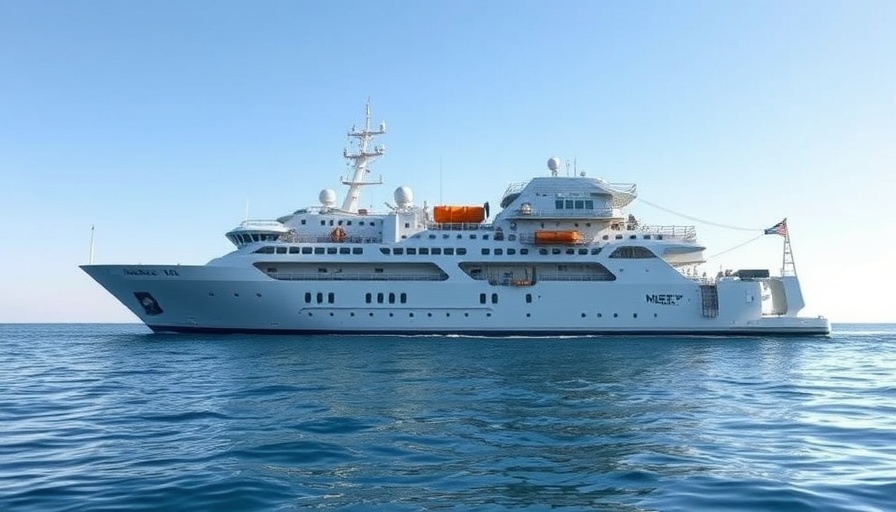
Unlocking the Mysteries of Our Oceans with Open Source Data
On this year's UN World Oceans Day, the spotlight shines on the remarkable power of open-source data to transform our understanding of the world's oceans. Vicki Ferrini, a leading marine geophysicist at Columbia University’s Lamont-Doherty Earth Observatory, champions this revolutionary approach through the Seabed 2030 initiative. This ambitious global project aims to map the ocean floor by 2030, moving us closer to identifying expansive underwater ecosystems essential for sustaining life on our planet.
The State of Ocean Science: A Collaborative Future
Ocean research is at a pivotal point, defined by a spirit of collaboration among scientists and organizations worldwide. Ferrini emphasizes that the integration of data across sectors allows researchers to compile and share valuable aquatic insights. By capitalizing on the unique potential of open-source data, initiatives like Seabed 2030 can accelerate our mapping efforts and enrich our comprehension of underwater terrains.
As we progress, recent statistics highlight that only 26% of the ocean has been mapped, a number projected to rise significantly as open-source efforts intensify. This collaborative spirit ensures that even data often perceived as insignificant becomes valuable when shared within a larger context.
Why Mapping the Ocean Floor Matters
The mapping of the seabed isn’t just a scientific endeavor; it has profound implications for our environmental future. The results can guide conservation efforts, inform climate adaptation strategies, and enable sustainable exploitation of marine resources. By 2030, having a comprehensive public seabed map will foster further exploration, drive scientific inquiry, and reveal discoveries necessary for our survival.
Emphasizing Open Access for All
Accessible data represents a cornerstone of Ferrini's vision. According to her, structuring data with curiosity in mind allows more than just experts to participate in ocean exploration. When researchers make data open and accessible, they democratize knowledge, inviting anyone from students to policymakers to engage in marine science. This not only broadens involvement but also enriches our collective understanding of ocean health and ecosystems.
The Future of Ocean Research: Hope and Innovation
As Ferrini digs into her work, she highlights her optimism for technological advancements accelerating data collection and processing. The marine research community is on the brink of a technological renaissance that may unveil parts of our planet previously considered too remote or challenging to explore. These innovations offer the promise of new insights into unchartered territories of our oceans, advancing our ongoing endeavors to protect and understand marine life better.
The next few years are crucial for ocean science as various international efforts work toward achieving complete seabed mapping. These initiatives highlight humanity's growing recognition of our oceans' vital role in planetary health. As advocates for sustainability, it is our responsibility—whether through reduced plastic use, supporting marine conservation causes, or simply staying informed—to contribute towards a healthier ocean tissue.
As we celebrate the oceans, let’s empower ourselves with knowledge about our waterways. Open-source data is not only fostering scientific collaboration but is also enabling us to connect with the oceans in richer, more meaningful ways—because it is only through understanding our oceans that we can truly appreciate their wonders.
 Add Row
Add Row  Add
Add 




Write A Comment